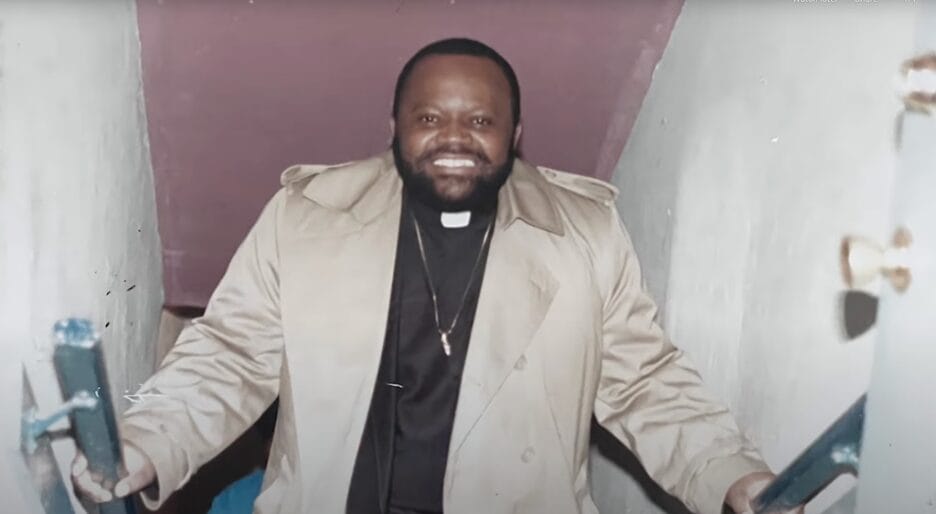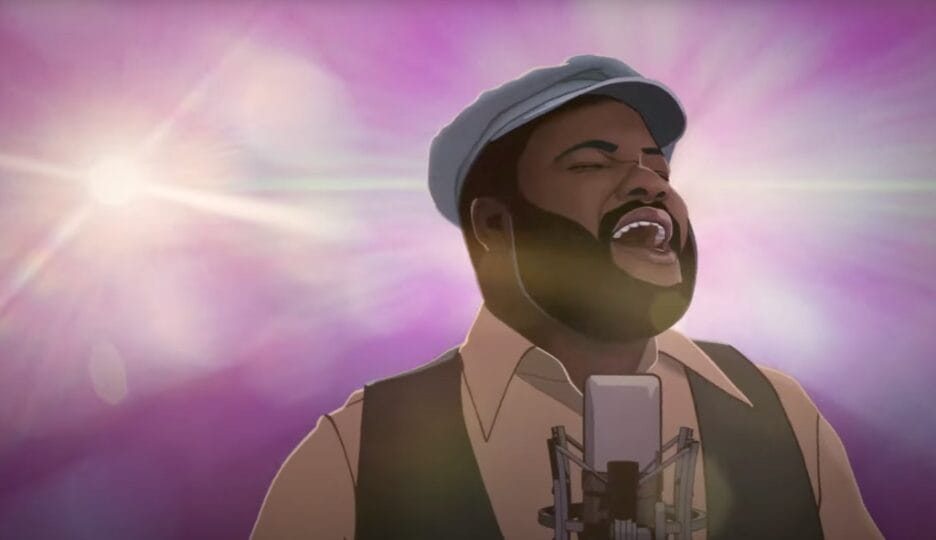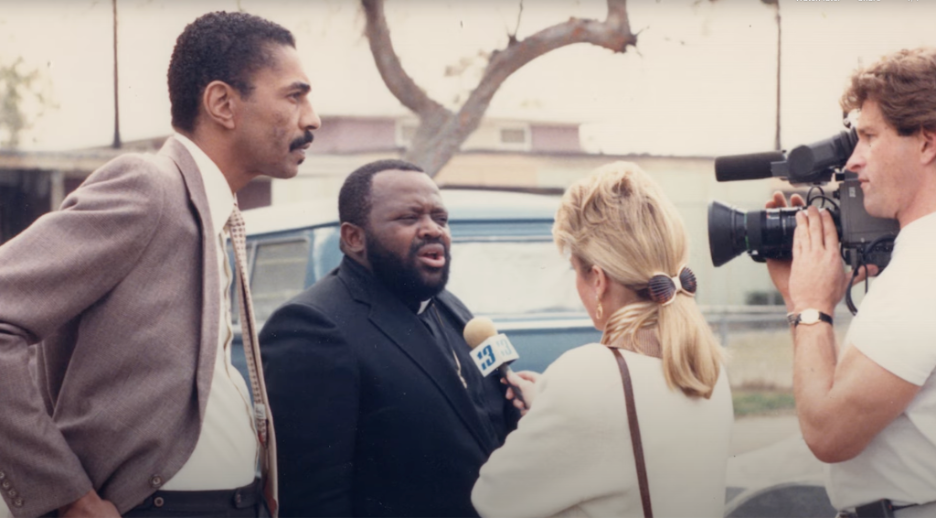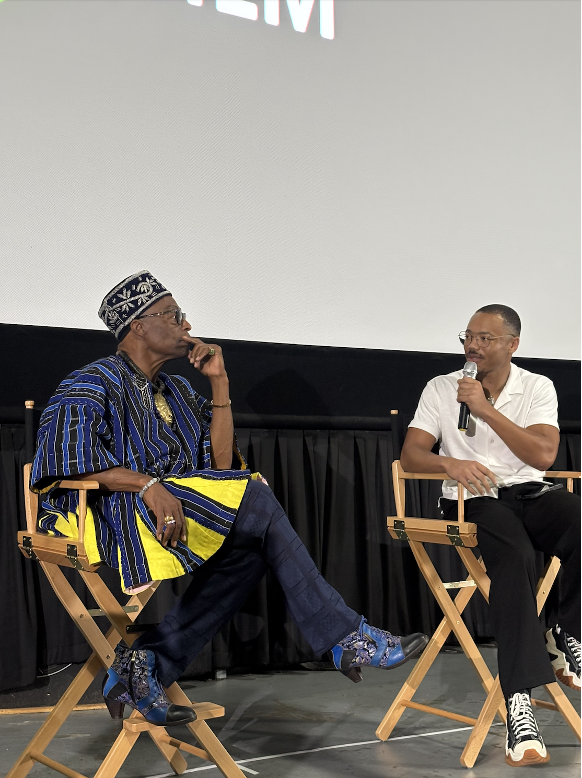
In its nearly 40-year history, Atlanta’s world-renowned Out on Film festival has rarely opened with a documentary. However, this year, “I Was Born This Way,” the powerful story of the late singer, activist, and LGBTQ-affirming religious leader Archbishop Carl Bean, was the exception.
Debuting to critical acclaim at the 2025 Tribeca Film Festival in June where it received an official selection, the Atlanta screening, sponsored by GLAAD, with a post screening talkback moderated by Julian Walker, Associate Director of Communities of Color and Media, and featuring Beatitude Bishop Zachary G. Jones, longtime friend and colleague of Bean, drew a packed house at Landmark Midtown Art Cinema for one of the festival’s most anticipated screenings.
Long before pop singer Lady Gaga, who makes an appearance in the film, declared she was “born this way” on the Grammy stage in 2011, Bean had done so three decades earlier as an out singer on the Motown record label during an era when being closeted for many LGBTQ people was a necessary means of survival. Making his mark first as a gospel singer, Bean got the break of his life when Motown tapped him in 1977 to record the disco song “I Was Born This Way. Although Bean was the second artist to record the track, the first, recorded by singer Valentino, was considered mainly unsuccessful after failing to chart. But Bean, with his husky, soulful, and gospel infused voice, not only managed to break onto the Billboard charts, but his version quickly became a gay anthem.

“I wanted to sing message music,” Bean says in the film. “When I saw the lyrics [to “I Was Born This Way”], it took me a minute to believe that it was on the paper.”
I’m walking through life
In nature’s disguise, yeah
You laugh at me
And you criticize, yeah
‘Cause I’m happy
Carefree and gay
Yes, I’m gay
It ain’t a fault, it’s a fact
I was born this way, yeah
“It was so brave. It was so bold. It was contagious, and it made me want to dance,” Lady Gaga says in the film.
Using innovative rotoscope animation, a process of creating animated sequences by tracing over live-action footage frame by frame, Bean, along with the film’s co-directors Daniel Junge and Sam Pollard, immerse the audience in one of Black music’s most pivotal and unsung moments during an era where LGBTQ influence ruled the music industry and when Motown, one of the most prolific Black record labels at the time, wanted to capitalize on disco’s popularity.

“There would be no disco without gay people,” Bean said, who admits to initially hanging up on Motown executives attempting to reach him, fearing a hoax.
The first live performance of I Was Born This Way, Bean recalls, was at the storied and cultural landmark Jewel’s Catch One in the Crenshaw District of Los Angeles, which would also become the epicenter of Black HIV activism in Southern California.
“Several of my friends couldn’t get in at the gay clubs in West Hollywood,” Bean says in the film, acknowledging the presence of racism within the broader LGBTQ community, and a long history of intracommunity discrimination at gay bars where Black queer patrons were often asked to present multiple forms of identification to gain entry.
“Being gay was nowhere as tough as being Black in America,” he said. “All that joy [in the music] and I still had to walk away dealing with racism.”
And a looming HIV crisis.

As the HIV epidemic began to ravage the gay community, Bean went on to found the Minority AIDS Project.
“He received widespread media attention–first locally and then nationwide–as one of the very few African American clergy initially responding to the HIV crisis. Bean began his ministry, which he called Unity Fellowship of Christ Church (UFC), in South-Central LA. He arranged a notice in The Sentinel, L.A.’s African American newspaper, about an openly gay minister starting a Bible study with gays and lesbians that initially met in his home,” according to the LGBTQ Religious Archives Network.
Bean’s motto: “God is love, and love is for everyone.”
“He invites us all into this movement that love is for everyone, so we can all be a part of changing the dynamics of this world in the condition that it is now,” Beatitude Bishop Zachary G. Jones tells Julian Walker during the post-screening talkback. “And so he taught us how from that little small corner [on Jefferson Boulevard in Los Angeles], now [we have] 17 organizations around the world.”

In addition to Gaga, Academy Award-winner and music producer Questlove, Rep. Maxine Waters, and multi-hyphenate queer artist Billy Porter also appear in the film. Porter uncovers the master recording of Liberation, an unreleased B-side to I Was Born This Way, tucked away in a box for nearly 15 years.
Despite health challenges and limited mobility preceding Bean’s death in 2021, he is still teaching from the grave.
“Loving people that are different from us is the only way forward,” Bean says in the film. “Find the place in you that allows you to be yourself.”
“Even though it’s been four years since he’s gone, I still miss him greatly,” Jones said. “I miss being able to pick up the phone anytime and talk about nothing. He was a person who, in the midst of all the darkness, kept you laughing. He kept you full of joy. He was able to find a way to turn the darkness hour into laughter. And we laughed all the time,” Jones recalls.
“We never stopped laughing. And that’s what got us through some of those challenging periods that we could have never imagined.”
Atlanta’s Out on Film Festival runs through October 5, 2025, at Landmark Midtown Art Cinema.
See additional screening dates for I Was Born This Way here.
Editor’s Note: Alex Schmider, Senior Director of Entertainment at GLAAD, is a consulting producer on I Was Born This Way. Wellington Love (“Beyond The Aggressives”) and Jed Alan, producers, with Billy Porter, Questlove, Jamie Lee Curtis, Cori Robinson, Josh Green, Kristin Wolf, Barbara Bridges, Will Laban, and Neal Bear serving as executive producers.












